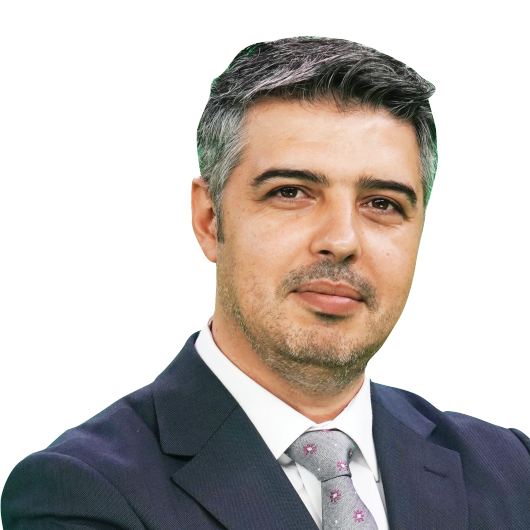
- 28.12.2024, Saturday
- 09:59
How will Iran overcome these tough days?
00:2423/05/2024, Thursday
U: 23/05/2024, Thursday
Next article
Yusuf Dinç

As two major powers, Iran and Türkiye, continue their policies while watching each other's backs, it's a fact both states are geopolitically aware of. However, the depth of historical and cultural closeness between the peoples of both countries can never be overlooked. Since the evening before last, the helicopter crash involving Iranian President Ebrahim Raisi has been closely followed from Türkiye with the highest curiosity after Iran. Such keen interest doesn't arise in any other country. This
As two major powers, Iran and Türkiye, continue their policies while watching each other's backs, it's a fact both states are geopolitically aware of. However, the depth of historical and cultural closeness between the peoples of both countries can never be overlooked.
Since the evening before last, the helicopter crash involving Iranian President Ebrahim Raisi has been closely followed from Türkiye with the highest curiosity after Iran. Such keen interest doesn't arise in any other country. This phenomenon is the closeness of nations whose cultural codes have intertwined for centuries.
Three possibilities exist regarding the helicopter crash:
1. It could be a straightforward accident. There's no need to overthink it.
2. It may be related to Iran's internal governance and religious leadership.
3. There's a possibility of external intervention, particularly from Israel.
Whatever the case may be among these three possibilities, the Iranian government will be affected by these processes. As is known, the Iranian government is, to some extent, built on a balance of two powers. Firstly, Ali Khamenei is the supreme religious leader. He holds the final say within the system, speaking through clerics, making him the authority in state affairs. In Shia state theory, Ali Khamenei, who is also an ayatollah at the level of marja' al-taqlid (source of emulation), is expected to be succeeded by former president Hashemi Rafsanjani, who was the strongest candidate. Rafsanjani passed away, and this debate ended before it even began. Rafsanjani was a statesman in the style of Özal. He was closer to the reformists.
The likelihood of Raisi becoming the supreme religious leader was very high. Additionally, there are talks that one of Ali Khamenei's sons is also one of the candidates for the position of religious leader.
Some advocate for the politics of Mojtaba Khamenei, who represents the third generation. They believe that someone who understands the post-Cold War conditions will have a different politics than his father. For someone to become the "guide" in Iran, 12 religious scholars at the rank of ayatollah must approve the individual.
Iran is living with two major problems intertwined. Firstly, there's the embargo centered around nuclear activities due to ongoing tensions between the US and Iran. Many state companies in Iran are subject to sanctions. Therefore, Iran has to resort to many indirect methods regarding oil supply and commodity procurement. Despite having an economy based on oil, Iran's income distribution is very skewed. The injustice in wealth distribution reflects negatively on Iranian politics.
The second problem facing the Iranian state is a legitimacy issue. The Iranian regime has two sources of legitimacy: "guidance," meaning Ali Khamenei's religious representation, and elected governments supported by the people.
Since the presidential candidacy of Mir Hossein Mousavi was obstructed in Iran, or more precisely, since the influence of Iran's reformist left movement in politics was restricted, elections in Iran have, in a sense, been marked by protests from part of the electorate. In the last elections, it's known that the turnout dropped to the 40s, and in Tehran, the heartland of Iranian politics, it's known to be even lower. From this perspective, Iran, trying to deal with many problems in foreign policy, also has deep problems in societal legitimacy.
The current situation of the Iranian regime resembles the single-party era in Türkiye. CHP members in Türkiye are not very familiar with Iran. However, if they were to meet with conservative representatives in Iran, they would encounter such a similar mental structure that they would probably be surprised by this resemblance. When states face a revolutionary process, there is a convergence in the behavior patterns of those who manage the revolutionary process.
First and foremost, condolences to the Iranian people. May God have mercy on the deceased. When a stone is moved in government administrations, there are dozens of reflections within the state and political mechanism.
The Iranian state is built on many different power balances internally. For major powers, the phrase "There's not a single state against us" is used. The death of the Iranian President raises many questions in my mind, from religious guidance to politics and Iran's democratic legitimacy.
#Iran
#Ebrahim Raisi
#Crash
#Türkiye
LEGAL NOTICE
The BIST name and logo are protected under the "Protected Trademark Certificate" and cannot be used, quoted, or altered without permission.All rights to the information disclosed under the BIST name are entirely owned by BIST and cannot be republished. Market data is provided by iDealdata Financial Technologies Inc. BIST stock data is delayed by 15 minutes.
